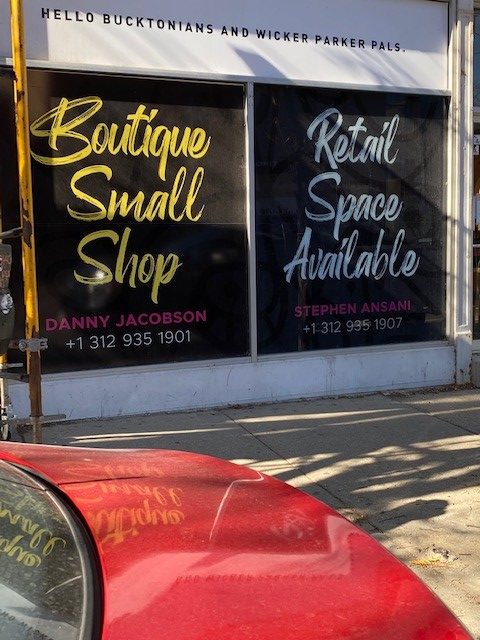 My neighborhood is deteriorating because of the COVID-19 crisis. The restaurants are struggling. The stores are dwindling. The only ones that seem to remain are national chains. The window signs shout out for new retailers to claim the space.
My neighborhood is deteriorating because of the COVID-19 crisis. The restaurants are struggling. The stores are dwindling. The only ones that seem to remain are national chains. The window signs shout out for new retailers to claim the space.
I’m in a position to help and I must. We all must. If we don’t, we will find ourselves with just a handful of stores open for business. I made a list of potential stores that I could shop and, just in completing that exercise, several were already shown as out of business. So, I took to my car and drove a few miles from my home in all directions and what I encountered shook me to the core.
I wanted to apply a similar rigor by looking at a local retailer that I might apply to a larger one. Of course, there’s no comparison, but there is important information that one should understand. In Digital Commerce 360’s Pre-Holiday survey of 118 retailers, 29% anticipated consumers would shop local to save their communities. We will need more than this to save our neighborhoods.
The web and local are forever intertwined
Hazel is one of the most charming stores in Chicago. Its website says it all. “We encourage you to shop small and shop early this holiday season with Hazel.” It references extended store hours, an expanded online selection and the option for curbside pickup. And no retail site would be complete without sharing its COVID-19 accommodations. Both channels feed off the other, ensuring success based on circumstances. Now more than ever, this is a model for local survival.
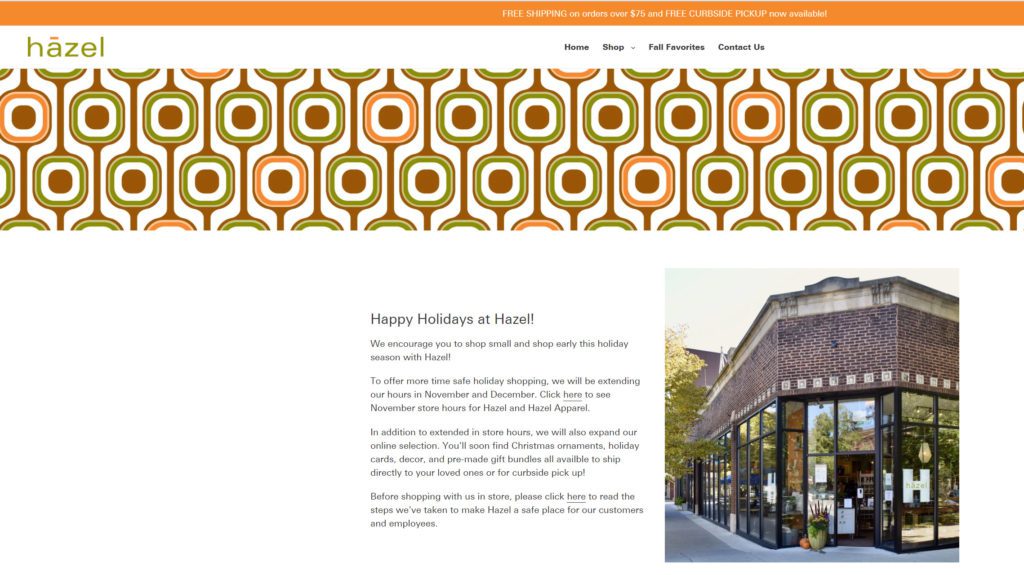
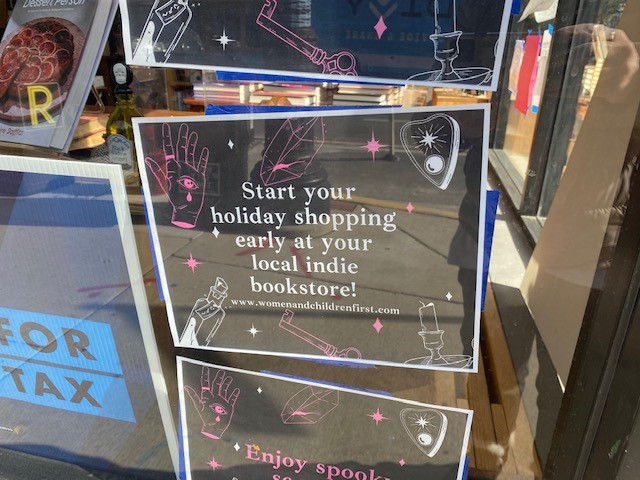
Independent bookstores have had a hard time of it over the past few years since Amazon launched. Many have shuttered as a result. Women & Children First continues to keep its doors open and reminds shoppers that it is available online as well. The retailer’s store is a billboard for political action as well as holiday shopping.
Small also means getting creative in capturing business. For some, like Women & Children First, that includes a membership model factoring in Barnes & Noble and others. For $25 a year, shoppers get 10% off across channels and 20% off during its annual sale. The question is, will this be enough?
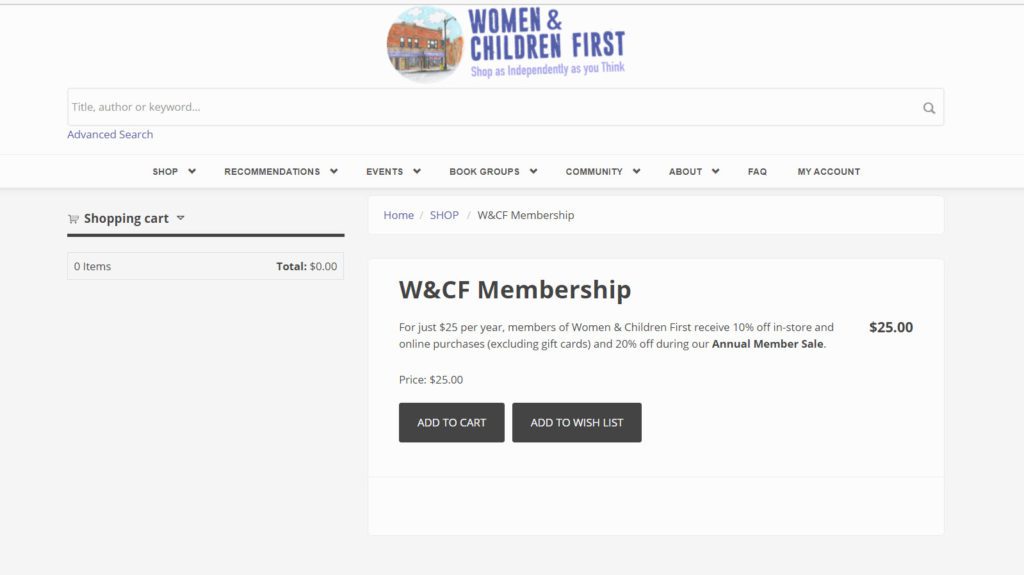
Assortment uniqueness is an opportunity to succeed
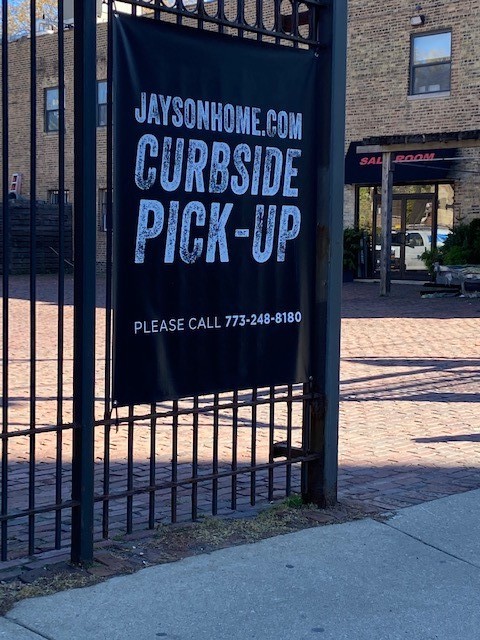 In that same survey we referenced earlier, we inquired about Amazon, which is slowly putting many small retailers out of business. Two dynamics rose to the top in terms of ways to fend off this behemoth. It starts with greater attention to customer service and, secondly, unique or curated selections.
In that same survey we referenced earlier, we inquired about Amazon, which is slowly putting many small retailers out of business. Two dynamics rose to the top in terms of ways to fend off this behemoth. It starts with greater attention to customer service and, secondly, unique or curated selections.
Jayson Home is a mainstay of Clybourn Avenue in the heart of Lincoln Park in Chicago. Its taste level and selections are second to none and a reason to return for both self-consumption and gifting. Its website suggests gifts that are well curated relative to the usual selection one finds across the web. The retailer’s street front signage reinforces the role of curbside and its role as an omnichannel solution.
Customer service commands attention
Small retailers have the chance to go the extra mile through service. This, to me, is one of the main reasons small can still survive. I have experienced such service as retailers make the exception rather than following the rule. I reached out to Laudi Vidni’s founder, Laura Kofoid. Laudi Vidni is the word individual spelled backwards. Her shop on Armitage Avenue, makes custom leather bags of exquisite quality for people who live life on their own terms. Customers choose from more than 40 styles and personalize with leather, lining, hardware and other details.
When I asked what customer service means, her answers spoke for themselves and the power of taking care of the customer:
- 100% guarantee. If a customer doesn’t like a bag for any reason, we take it back. It eliminates the risk of customizing and buying from us.
- We review every order before it’s made. And reach out to the customer if we have any suggestions or concerns. Customers love the input and we reduce potential returns.
- Stylists build relationships with customers, and customers then feel comfortable calling or emailing for advice. This helps especially during COVID.
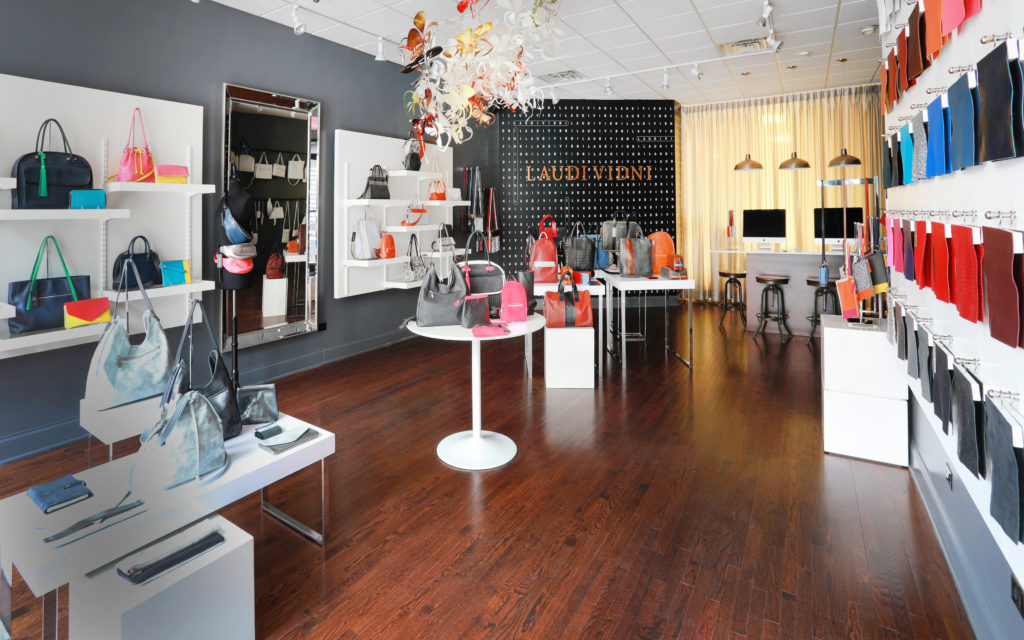
Curbside captures the hearts of shoppers
With 20% of online shoppers in our Digital Commerce 360/Bizrate Insights 2020 Pre-holiday survey of 1000 online shoppers indicating they will use curbside this holiday season as the pandemic rages on, retailers who make this large-store phenomenon available at the local level will resonate with customers. It can also be the ticket to survival should future restrictions be put in place throughout this season. Apparel retailer Raygun has devoted almost half of its window to curbside pickup information.
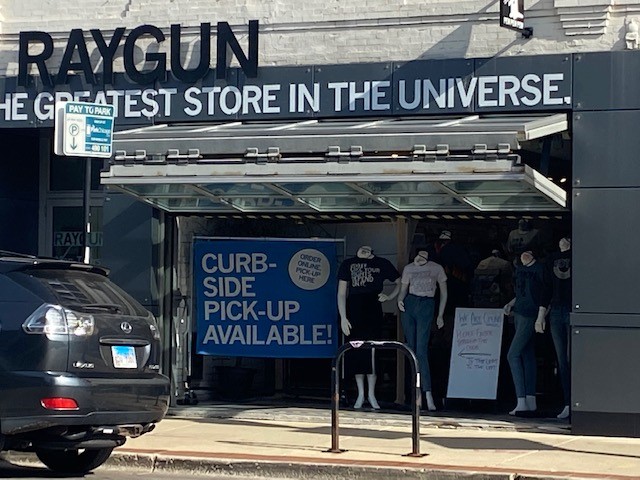
Product availability powers in-store visits
Shoppers want to be confident that every trip to the store can be a productive one. Therefore, knowing a store’s stock status is essential. In our Digital Commerce 360/Bizrate Insights February 2020 omnichannel survey, already 54% of online shoppers checked for product availability before heading off to the stores.
Though Uncle Dan’s has two local Chicago stores and is now part of a larger umbrella, I still classify it as local. Its efforts in helping shoppers know what’s available by location are impressive for its size. The reality is it competes against many others where this is the everyday norm. As a result, such omnichannel functionality is mandated for survival among specialty giants like Dick’s Sporting Goods and REI.
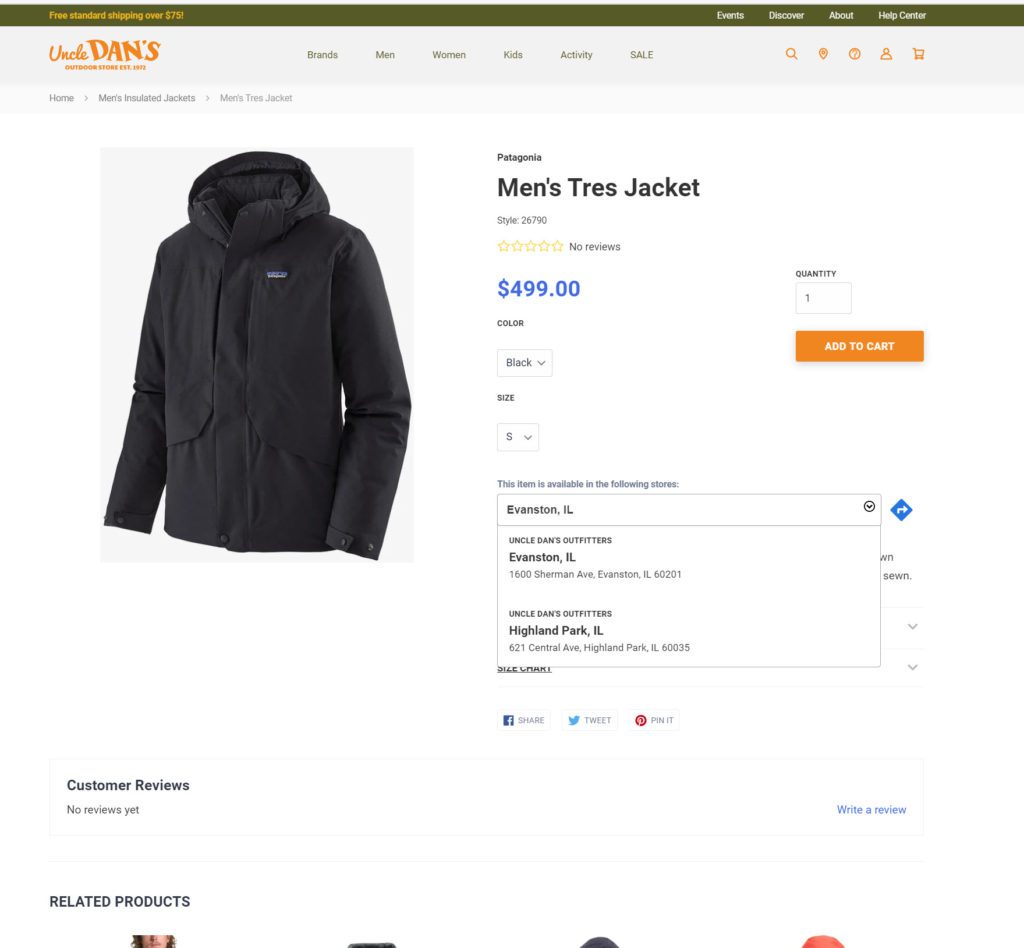
Return policies revamped for the web
One of the challenges small retailers face is not being able to compete with open-ended return policies extended by larger competitors. Local retailers have learned that for online orders they need to get creative to compete. While information is power, sometimes it’s more than shoppers can cope with. We need the facts straight up, otherwise we quickly move to our default—the large retailers.
Art Effect does a nice job at addressing both its shipping and return policies. Of course, relative to a traditional ecommerce company, there are limitations. Returns need to be processed within 10 days, but this is in stark contrast to long-trending store credit only policy. It is essential for growth in today’s current business climate driven by web shopping.
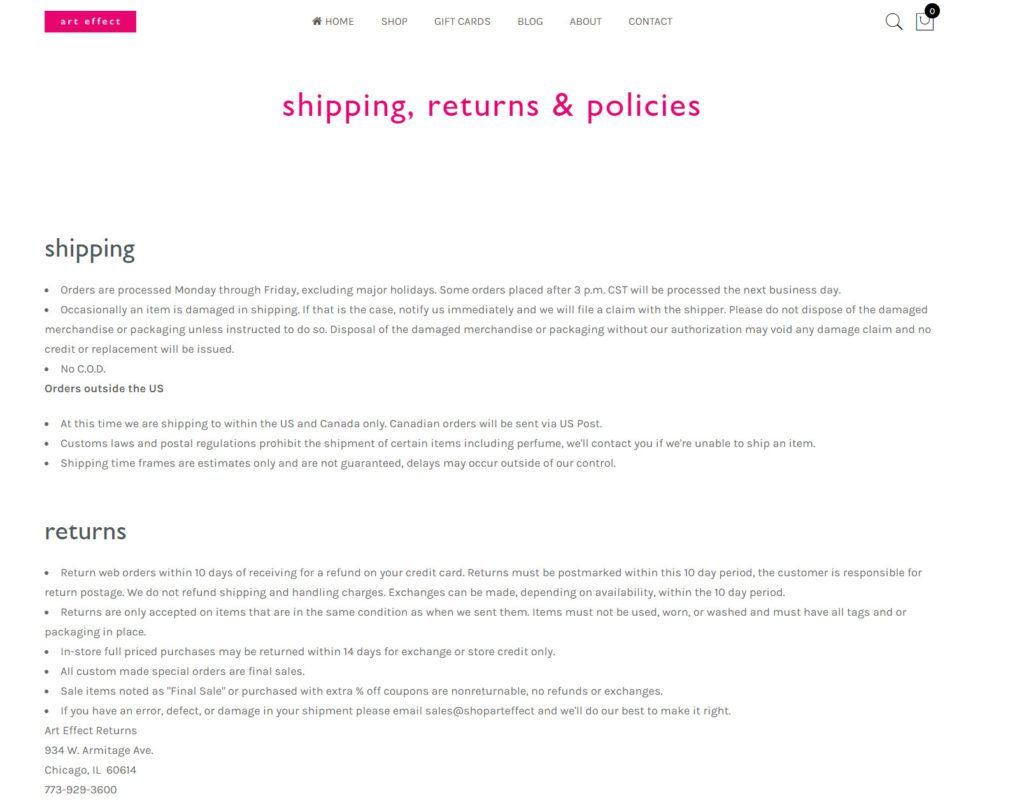
The beauty of small is that it doesn’t even need to be in my neighborhood. As I was completing this post, I received an email from Uncommon Goods. I have known David Bolotsky, its CEO, since my early days of ecommerce. He stood out in the world of investment banking as being extraordinarily kind. This post featuring “Made in the USA” with a reference to shop small business, speaks to ways that online retailers can help promote small businesses, knowing the value they deliver to the world we live in.
Think small, shop local
We must remember that we are all in this together. Survival and neighborhood growth makes for stronger business and better lives. So, when you head online to click on Amazon, instead think small and shop local. Remember what it might mean to your life and the lives of those who live in your neighborhood.
Favorite